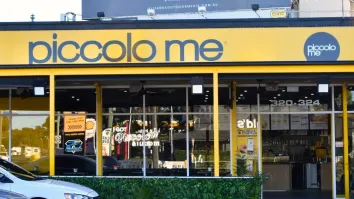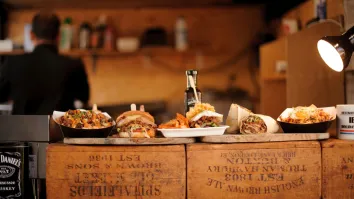
See why QSRs have all-out support for local sourcing
Ali Baba, Grill'd, Chatime, and CIBO Espresso share their thoughts.
Local sourcing is a company practice of buying food ingredients and other inputs locally and then selling the end product to the domestic market. Four of the quick service restaurant chains we interviewed practiced local sourcing, partnering with Australia’s local farmers in order to secure high-quality meat and dairy for their store products.
Not only is local sourcing a great competitive strategy by lowering the costs of expensive imports, it also helps brands appeal to the nationalist pride of consumers.
The local sourcing trend has become one of the hottest buzzwords in the restaurant industry not only in Australia, but also in the United States where the National Restaurant Association ranked “locally sourced meats and seafood” and “locally grown produce” as the top 1 and 2 trends for 2013, respectively, among 1,800 chefs surveyed.
Continuing a tradition
For some chains like Ali Baba, local sourcing is not just a flavor-of-the-month bandwagon but is actually part of its service tradition and brand identity.
“Sourcing the best quality local products is extremely important and has been paramount throughout our 34-year history,” said Dominic Cain, General Manager- Operations & Marketing at Ali Baba. “The ability to provide consumers with locally grown and fresh food is something we are passionate about.”
It helps that the meat and poultry products that go into making Ali Baba kebabs and the rest of its savory menu can be sourced locally at a premium quality that customers demand and expect.
“Customers are more discerning about the products they are eating and therefore focusing on where we get our products is very important to us. In addition, we take great pride in our Australian raised meat and poultry, which is at highest level of quality and nationally recognised as export grade.”
Locally sourcing its meat and poultry also helps Ali Baba stay competitive, as imported varieties can be more expensive and ultimately hurt franchisee bottom lines when all costs are accounted for.
“Being a franchise brand we also need to stay competitive in terms of pricing for our franchisees so we have to think locally about what's available to each store and what can be produced,” said Cain.
“Being an Australian owned business we also like to support other local businesses so that is another factor we consider,” he added.
Factoring in seasonality
Local sourcing though has its limitations. Grill’d, for example, cannot possibly source all of its ingredients locally – not if it hopes to serve a consistent menu. Instead Grill’d establishes close relationships with small but high-performing producers so that during specific seasons, it can source truly fresh local produce.
“Depending on the season, we aim to source our fresh produce locally and most of it does come from small producers,” said Simon Crowe, Founder of Grill’d.
“For example, our Meredith Dairy Goat cheese is made by the Cameron family in Victoria. The Meredith Dairy has won an Australian Grand Dairy Award and is consistently recognised for its commitment to sustainability. We also source our grass fed beef from a family run business who raise their cattle in the cool climate Gippsland region in country Victoria, while our grass fed lamb comes from the south western regions of Victoria,” he added.
Sipping on the local sourcing advantage
Aside from full menu restaurants, beverage brands also leverage on local sourcing to push out great-tasting tea and coffee drinks.
At Chatime, all of its dairy products is sourced and supplied from Australian dairy farmers. The rest of the products are flown in from Taiwan, but Karen Leong, Head of Marketing at Chatime defends that this cannot be helped.
“Although a majority of our ingredients is imported from Taiwan for consistency of taste, we will always source local suppliers where needed,” citing how Chatime beverages are concocted with fresh cream and milk sourced from Australia’s export-grade dairy sector.
Cibo Espresso also practices local sourcing in response to strong customer demand for brands to support Australian farmers and growers.
“CIBO Espresso works closely with our local farmers to source the best quality products available. Local sourcing is an ongoing project for our kitchen and suppliers and we will continue to address customer trends and requirements,” said Roberto Cardone, co-founder of Cibo Espresso.

























